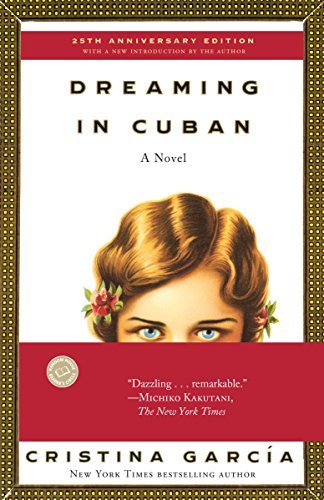TL;DR
Dreaming in Cuban by Cristina García is a poignant story of a family divided by the Cuban revolution, blending magical realism with themes of politics, separation, and identity.
What is Dreaming in Cuban about
Dreaming in Cuban is a novel that tells the story of the del Pino family, spanning from the mid-1930s to 1980. Central to the narrative is Celia del Pino, whose life is deeply affected by the Cuban revolution. The novel explores themes of family relationships twisted by politics and geography. Through a blend of magical realism, García presents a haunting vision of Cuba, portraying its beauty and corruption, idealism and poverty. The story delves into the personal passions and dreams of the characters, particularly Celia, as they navigate the turbulent political landscape and question their identities.
Dreaming in Cuban 6 Key Takeaways
The del Pino Family Background
The story begins with Celia del Pino and her family, offering a glimpse into their lives from the mid-1930s onwards. Celia's relationships with her husband, children, and grandchildren are central to the narrative.
Impact of the Cuban Revolution
As the Cuban revolution unfolds, the family is divided by political ideologies and geography. This separation strains their relationships and creates a sense of longing and loss.
Celia's Passion and Dreams
Celia's character is deeply passionate and idealistic. Her dreams and aspirations are continually challenged by the political upheaval around her, leading her to question her identity and purpose.
Magical Realism Elements
The novel employs magical realism to reflect the surreal and dreamlike quality of life in Cuba. This style enhances the emotional depth and complexity of the characters' experiences.
Generational Differences
The story highlights the differences between generations within the del Pino family, particularly in their responses to political and social changes. These differences underscore the broader themes of identity and belonging.
Resolution and Reflection
By the end of the novel, the characters have undergone significant personal growth and reflection. The narrative comes full circle, offering a bittersweet resolution that underscores the enduring impact of family and history.
Top Dreaming in Cuban Quotes
- 'Celia said, 'My children have left me. My country is gone. I am alone.''
- 'We all dream in Cuban, my daughter.'
Who should read Dreaming in Cuban?
Dreaming in Cuban is ideal for readers interested in historical fiction, magical realism, and family sagas. It will particularly resonate with those curious about Cuban history and the personal impacts of political upheaval. The novel offers deep emotional insights and a richly layered narrative that encourages reflection on identity and belonging.
Dreaming in Cuban Best Reviews
- 'Dreaming in Cuban is a work of exquisite beauty and depth, blending the real with the surreal in a way that captures the essence of Cuba's complex history.' - The New York Times
- 'Cristina García's prose is both lyrical and powerful, painting a vivid picture of a family and a nation in turmoil.' - The Washington Post
People also liked these summaries
Dreaming in Cuban FAQs
What is the book Dreaming in Cuban about?
Dreaming in Cuban explores the lives of the del Pino family, divided by the Cuban revolution, and delves into themes of family, politics, and identity.
What is the main idea of Dreaming in Cuban?
The main idea is to explore the passions and dreams of Celia del Pino as she navigates the impacts of the Cuban revolution on her identity and family.
What is the meaning of the title Dreaming in Cuban?
The title reflects how dreams, memories, and half-truths shape the characters' identities and lives, highlighting the surreal and complex nature of their experiences.
